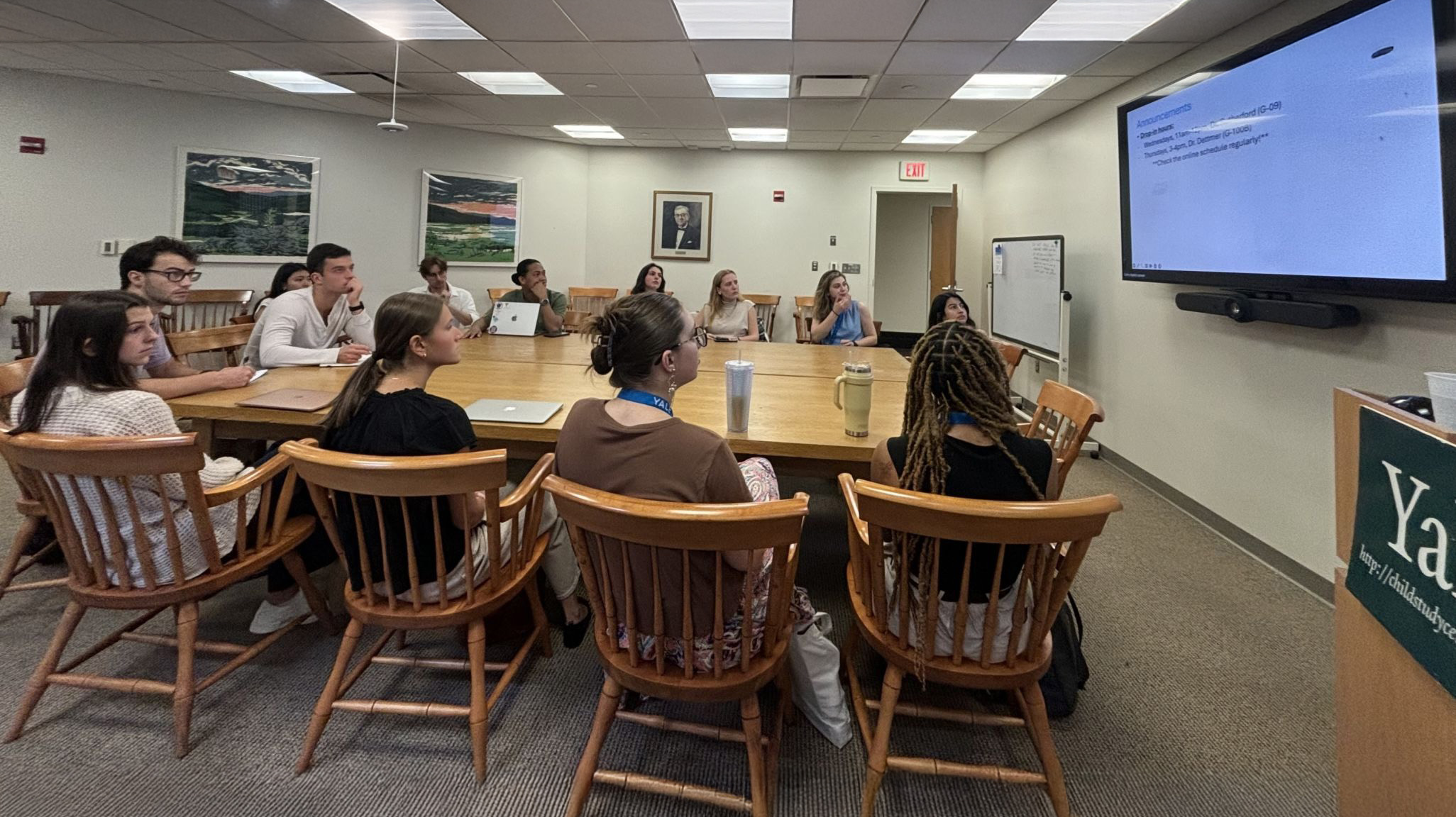Sewanee students have enjoyed rich research experiences under the generous mentorship of Yale faculty. All of these collaborations have resulted in poster presentations; some have even resulted in co-authored manuscripts in peer-reviewed journals.

2024 summer interns
Below is a list of recent Sewanee students, their Yale mentor, and primary research project during their summer and/or semester at Yale. While many Yale mentors and projects are likely to continue over multiple years, research projects may end or take on new directions, some mentors may pursue other commitments, and new mentors may join the program.
In describing your interests in your application materials, please do not restrict yourself to the topics and projects listed here. Instead, aim to present the full scope and depth of your interests, as these may guide the recruitment of additional mentors and open up additional possibilities for you aligned with your interests.
Recent Sewanee-at-Yale fall semester students:
- Rob Sullivan, C’25 Neuroscience
Mentor: Hilary Hahn, MPH, MEd & Declan Barry, PhD
Title: Understanding MOMS partnership program participants according to Maslow’s hierarchy of needs - Kelly Walker, C’24 Neuroscience
Mentor: Declan Barry, PhD
Title: Patient terminology preferences with regards to substance use - Christopher Le, C’ 25 Neuroscience
Mentor: Dustin Scheinost, PhD
Title: Connectome-based predictive modeling as a novel approach in assessing pain perception in individuals with opioid use disorder - William Trosch, C’25 Neuroscience
Mentor: Denis Sukhodolsky, PhD
Title: Parent-rated adolescent irritability is associated with parental stress - Madison Reid, C’24 Neuroscience & Psychology
Mentor: Emily Olfson, MD, PhD
Title: Meta-analysis of the prevalence and gender distribution of excoriation disorder - Anna Pusok, C’24 Neuroscience & Psychology
Mentor: Denis Sukhodolsky, PhD
Title: Brain correlates of anxiety in autism are moderated by social impairment
Recent Sewanee-at-Yale summer interns:
- Logan Marco, C’25 Neuroscience & Economics
Mentor: Michael Crowley, PhD
Title: Self-referential processing and negative rumination: A meta-analytic approach - Joshua Fairhead, C’26 Neuroscience & Psychology
Mentor: Ellen Hoffman, MD, PhD
Title: Mutations in Autism Risk Genes Cause Behavioral Phenotypes in Zebrafish - Addison Cassada, C’25 Psychology
Mentor: Erin Warnick, PhD
Title: Comparing clinician, parent, and youth CGI improvement ratings at discharge - Caroline Alessio, C’25 Neuroscience
Mentor: Dylan Gee, PhD
Title: Family factors related to response to parent-based treatment for child anxiety disorders - Claire Chiles, C’25 Psychology
Mentor: Nadia Ameen, MBBS
Title: Immunofluorescence: an important tool to study CHE cells - Mc Noriel Baldonado, C’26 Biology
Mentor: Sacit Omay, MD, FAANS
Title: Effect of central diabetes insipidus on social- emotional functioning in patients with hypothalamic-pituitary tumors - Ashlyn Richards, C’25 Neuroscience
Mentor: Michael Crowley, PhD
Title: A meta-analysis on post-event processing social anxiety - Gennessee Torres, C’25 Neuroscience
Mentor: Carla Stover, PhD
Title: Overall reflective functioning in fathers with IPV - Kara Cooksley, C’25 Psychology
Mentor: Erin Warnick, PhD
Title: Variance in Medicaid reimbursement rates for behavioral health by state and region - Kylea Michael, C’24 Neuroscience & Psychology
Mentor: Karen Hanson, MSSA, LCSW
Title: The relationship between parental wellbeing (as measured by parental stress, depressive symptoms, and early relational trauma) caregiving confidence and competence. - Mark Wilson, C’24 Neuroscience
Mentor: Michael Bloch, MD
Title: Comparison of ketamine and its metabolites: mean plasma concentrations in adult and pediatric populations - Martha Goldsmith, C’24 Neuroscience
Mentor: Kieran O'Donnell, PhD
Title: Impact of prenatal per and poly-fluoroalkyl (PFAS) exposure on child cognition: evidence from an early caregiving intervention - Moon Gomes, C’25 Neuroscience
Mentor: Sarah Lichenstein, PhD
Title: Systematic review of the impact of COVID19 on students’ cannabis use patterns in the US - Nicholas Clate, C’25 Neuroscience
Mentor: Kartik Pattabiraman, MD, PhD
Title: The 22q11DS Microdeletion syndrome – disrupted thalamocortical connectivity - Sofina Behr, C’24 Psychology
Mentor: Nancy Borstelmann, PhD
Title: Social, emotional, and physical health outcomes in childhood cancer survivors at the Yale HEROs Clinic - Victor Esparza, C’24 Psychology
Mentor: Amanda M. Dettmer, PhD
Title: Coding non-verbal face-to-face interactions between mother-infant dyads in macaques and humans

